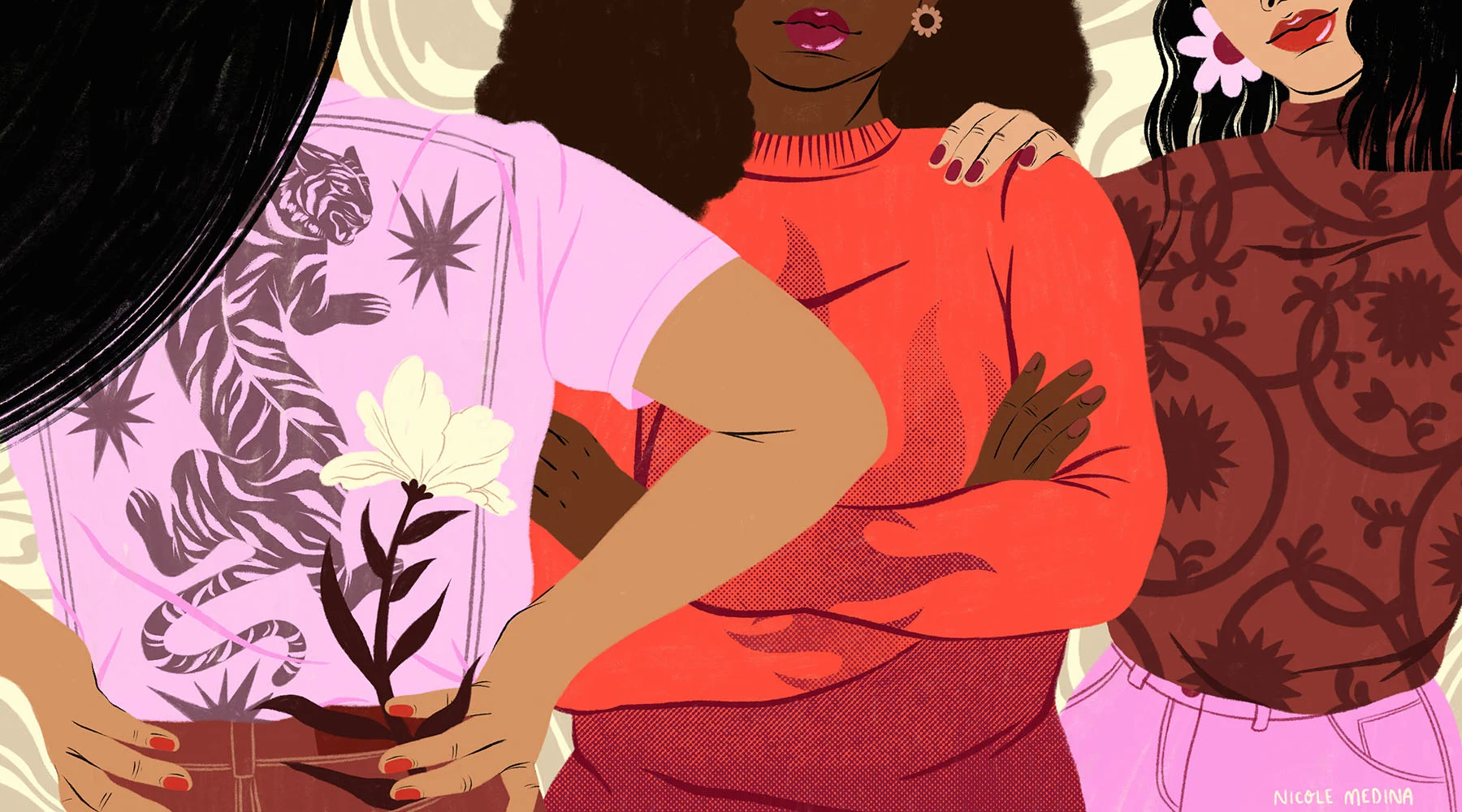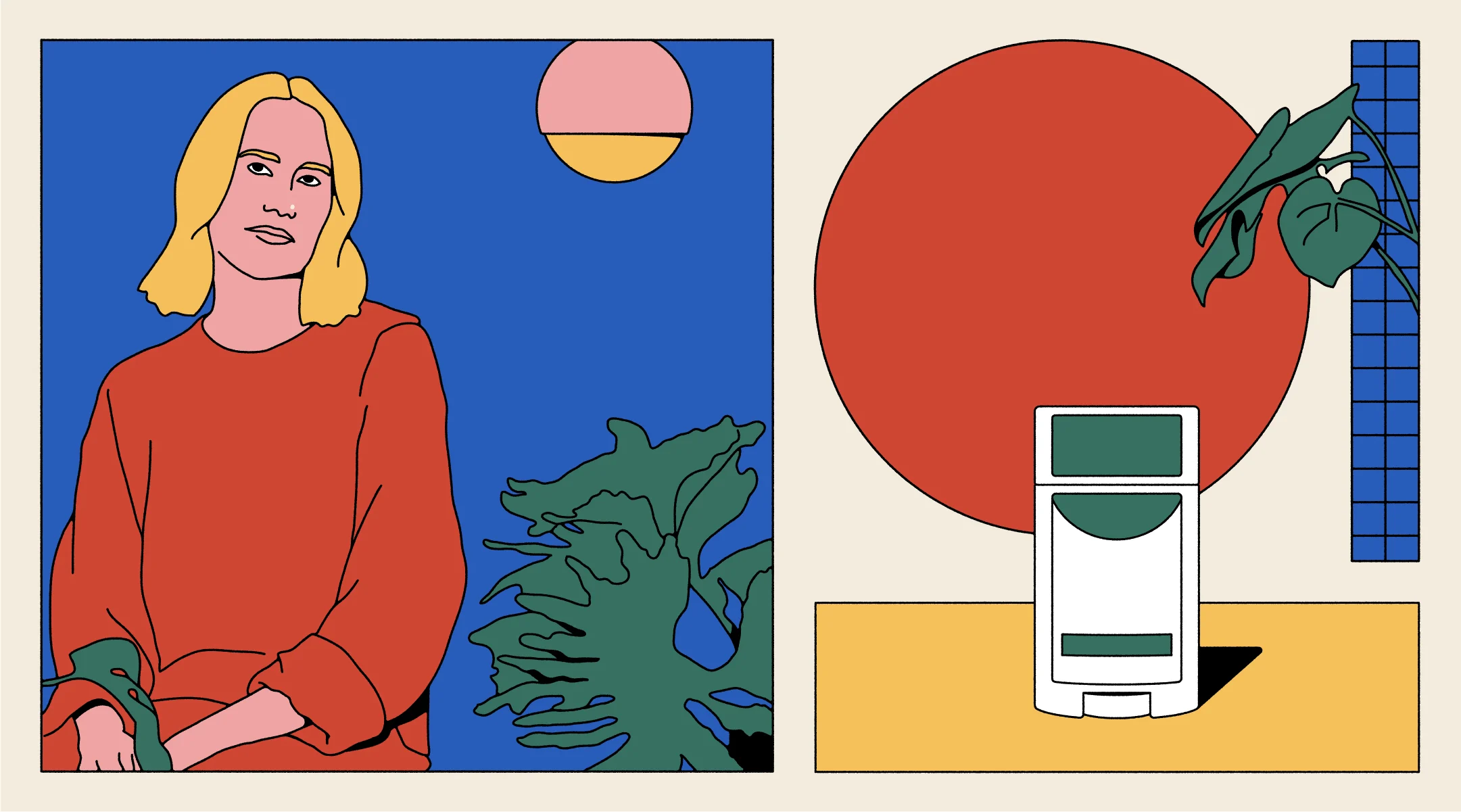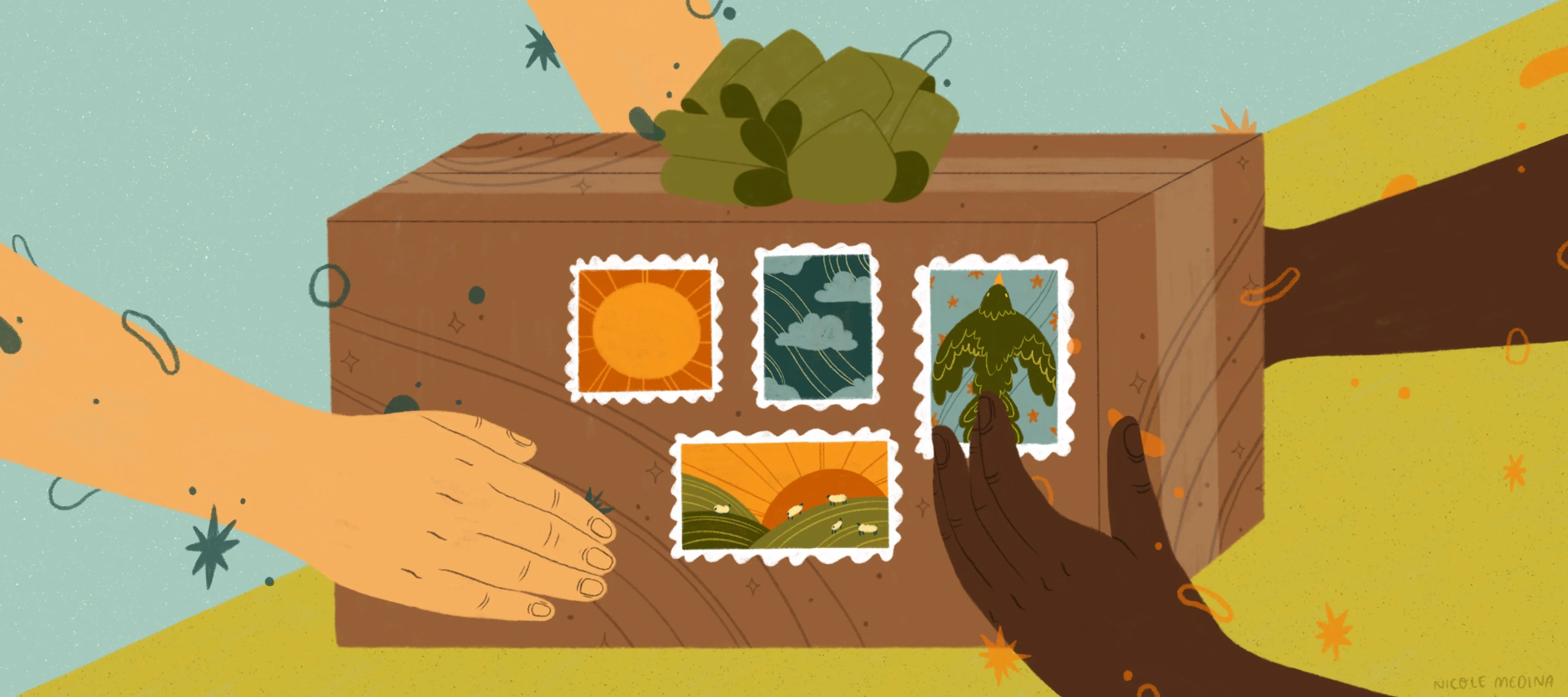Creative Women Speak on Womanhood: An Interview With Jouelzy
- 9 March 2021
- ByCarla Thomas

For Women’s History Month, Carla Thomas is here with us to highlight women who inspire her. Working in creative fields, these women hold valuable insights into what it takes to make it, and the unique challenges they’ve overcome in their careers. In this interview, Carla caught up with creator Jouelzy to talk about her journey to self-employment, finding success as a Black woman in the world, and what books she’s loving.
I searched and searched the internet for this book that I read when I was a child. I remembered the story but not the name. I kept searching for a “young adult book Autumn” or “Sojourner Truth performance arts.”
Eventually, I finally figured it out: Fall Secrets by Candy Dawson Boyd, described as “The first volume of a new series follows the adventures of four girls in their first year at a performing arts junior high school, during which Jessie, a spirited young African-American girl, explores racial differences and hides a painful secret.”
In the book Jessie was auditioning for a performing arts middle school. Jessie wanted to study theater and for her audition monologue, she recited Sojourner Truth’s “Ain't I a Woman?” speech. Jessie was just like me. I also had to do a monologue for acceptance at a performing arts middle school and I went with Sojourner Truth’s “Ain't I a Woman?” speech, just like Jessie.
Jessie and I both waited with bated breath to see if we were accepted into our schools. Jessie learned of her acceptance earlier than I did. I closely followed her middle school adventure that involved being one of the few Black students. I saw so much of herself in me.
Fall Secrets (which admittedly, I don’t remember the secret) made a huge impact on my life. Imagine an elementary school student reciting an 1851 speech by a former enslaved person on women’s rights as a monologue for a middle school audition. That boldness and curiosity has never left me. I thank Jessie for that.
I’ve always loved reading. My mother has this story about how she couldn’t wait till I learned to read because I was always asking her to read something to me. I have always found myself in characters, but as I got older and busier, reading has become a privilege.
Jouelzy, a content creator who does Black political history through a pop cultural lens has created this beautiful community called Smart Brown Girls. She hosts live discussions and creates syllabi to make reading accessible, it’s a community for the “Black girls in the forgotten spaces.”
I had the pleasure of chatting with Jouelzy about discovering one’s womanhood through books and how Smart Brown Girls is making reading accessible to all.
How has the journey to becoming 100% self-employed been? And how would you describe the journey as a Black woman creating content?
I just had to be very vocal. It's hard because I can't say that there's a way to replicate what I have done, because I also realized that it’s been a matter of luck and it's been a matter of my own hard work, my ambition, and my pursuit. But unfortunately, I have realized in this journey, that this world is not built for Black women to succeed. I don't take it as lacking on my part. This world was not built for me to succeed.
So when I go out and I strive for things, I realized that I have to be comfortable with asking for help and I have to be specific about the type of help that I'm asking for. I also have to realize that sometimes I'm not going to be where I want to be but there's a place for me to be. I've had tons of failures. I've had recent failures, but I’m doing financially very well. I could be making a lot more money, but I'm in the six figures. I think it's like, how do you define success? Am I really successful because if I stop working, I'm not going to be making money, right?
There's always more to do in my mind. I stay really focused on my work and not feeling like I need to be where other people are.
At what age did you feel that the world wasn’t made for Black women to be successful?
I'm well-read, I live a Black feminist lifestyle. I'm mostly with the way the internet has moved towards a more progressive stance on what is toxic and what is harmful, and trauma, and violence, right? But it's kind of wild because I remember being in college and having people take issue with me, because I would say, ‘What you're doing is wrong. The way you're treating me is wrong.’ I was told that I’m too uptight. Now we have the language to say that's microaggression.
I just remember being a child and feeling like the things that were happening to me were not right. But I did not have the control to stop them and everyone was telling me just to get over myself. And so at a young age, I did realize that , because I was constantly being told to get over myself.
And the ‘getting over yourself’ harps on our creativity.
I did a campaign with Adobe three years ago and I went to Adobe's conference and there's all these white men doing all kinds of shit because nobody ever stopped them and said, ‘Hey, don't be an artist.’
People are making huge amounts of money because art moves culture, art moves our lives.
I think we have a limited scope because of how the Black community has been treated in America. But when I went to that Adobe conference - they're talking about medical gear and packing, the highway and highway signs. Art and creativity influences the way we live our lives on a day-to-day basis. And because there's three or four white men that do this shit, they make money. There's a real lack of Black folks and there's a real lack of women overall in this space.
How do you push your creativity in a world that appropriates Black culture often?
I just do what I do. I commit, I commit to my work. I create and I create more and I just stand in my confidence.
I often think about Toni Morrison who had a quote that freedom to her means to free someone else. Do you think what you're creating is freeing other Black women and young Black girls?
We're reading Toni Morrison in the book club right now, Beloved. What I love about Toni is that in her books, none of her characters are inherently good people. What does it mean to be a Black person in America and to know that we are not allowed to be inherently good people because we have to deal with so much trauma? How do you come on the other side of that trauma being inherently good? You could be committed to kindness and that's a complicated task, right? She challenges us through her characters.
This idea of focusing on yourself - what does that mean in a community? We tend to talk about community as if we're gonna go do the work, and everyone is gonna be like, ’Yes, I love the work that you do.’
In Beloved, particularly, there’s a lot of reminders that these folks are going through their own trauma. Everybody has ingested and absorbed their trauma differently and is dealing with it differently. And sometimes they might not like you. They might not like you when you are trying to help them.
When I get a nice ‘thank you’ message, when I get a barrage of mean messages, as long as I'm not actually causing harm to people, I just keep doing what I do. I don't need to be fueled by someone saying specifically that I have done good by them. I do community facing work. I do public history work, so I'm very much so focused on the other people. But I also realize that, you know, I’m trying to fight for freedom and some people are just trying to pay rent and that’s some real shit.
Recent books or characters that you relate to?
I loved Heavy: An American Memoir by Kiese Laymon, one of my absolute favorite, favorite, favorite books. I don't have a character that I related to, but a character that definitely challenged me and reminded me that I need to be kind to Black women was Emira from Kiley Reid’s Such a Fun Age. A little Black girl who is not highly ambitious, but not every Black girl needs to be super ambitious in order to be respected.
What would be your top three must read books for Black women who are looking to go deeper into their womanhood?
They should just join my book club. We're going to get more into a better understanding of womanhood for Black women because all the books I'm going to recommend are not books that you can read on your own. You can, but I think reading with a community is so important because it allows your imagination to stretch your understanding of the reading.
So Beloved by Toni Morrison, Pleasure Activism: The Politics of Feeling Good by adrienne maree brown, and we only read four chapters from Black Feminist Thought by Dr. Patricia Hill Collins. I also did an interview with her on my book club YouTube channel and it's amazing, it’s perfect. It's one of the best things. I love it.
Article header image created by illustrator Nicole Medina.
9 March 2021
Words by:Carla Thomas
Tags
- Share

